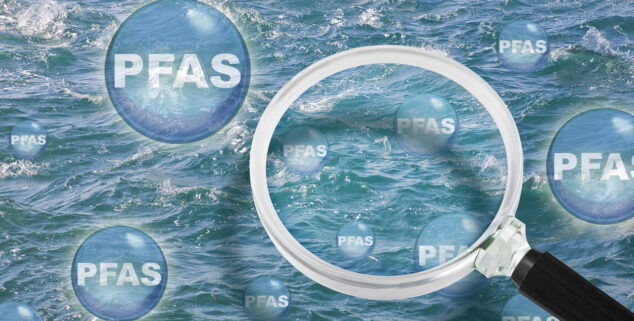Opinion
California must lead on banning the non-essential use of PFAS
 Image by Francesco Scatena.
Image by Francesco Scatena. OPINION – The time to act is now. California stands at a crossroads: either continue allowing companies to produce and sell dangerous “forever chemicals” like PFAS (per- and polyfluoroalkyl substances) that pollute our environment and jeopardize public health, or take bold, science-based action to eliminate their non-essential uses. Senate Bill 682 (Allen) leads the way by seeking to ban intentionally added PFAS in consumer products. Opponents argue the bill threatens economic stability, but what it truly threatens is their bottom line.
SB 682 follows the essential-use model, a policy approach backed by leading scientists and public health experts. This framework distinguishes between truly necessary applications of PFAS, like in certain medical devices, and the unnecessary uses that flood our daily lives with ongoing toxic exposure. Consumer products such as stain-resistant carpets, water-repellent clothing, grease-resistant food wrappers, and even dental floss create constant exposure pathways for Californians. Without SB 682, Californians will continue to be confronted by these chemicals in their daily lives.
Critics claim the bill is too broad and vague. But what they call vagueness is, in reality, flexibility. The essential use approach is designed to adapt to evolving science and to differentiate between essential and non-essential uses. This structure helps drive innovation and forces complacent companies to develop safer alternatives. This is how modern, science-based regulation should function, which is why the co-sponsors of this bill include diverse stakeholders such as Breast Cancer Prevention Partners, Clean Water Action, Natural Resources Defense Council, California Association of Sanitation Agencies, and the Environmental Working Group.
The concerns surrounding the health and environmental impacts of PFAS are significant. These chemicals are toxins linked to a host of serious health effects, including cancer, developmental delays in children, and altered hormone and immune function. Once in the environment or human body, PFAS persist for decades, and they can contaminate drinking water, soil, and air across California. The costs of removing these chemicals from water and wastewater systems are estimated to be in billions of dollars nationally, and that bill could be coming due sooner rather than later. The federal government has proposed strict limits on several PFAS compounds in drinking water, which could necessitate significant public investment to manage PFAS removal. This new cost burden is a direct result of the production, use, and disposal of PFAS by the companies that are profiting from selling it to Californians and the nation.
Who will foot that bill? Without clear source control regulation like that proposed in SB 682, the burden falls on local governments and public utilities, which are funded by California ratepayers. That means members of the public will see higher water rates and fewer resources dedicated to housing, infrastructure, and other public health concerns.
Preventing PFAS pollution at the source through product bans and source control is far more cost-effective than trying to clean it up after the fact. SB 682 places the burden where it should be: on the companies that manufacture and put these chemicals into their products and profit from their sale. Imposing reasonable limits on the sources of PFAS entering our environment is a policy approach that compliments the investments being made to protect our water resources from contamination. That’s more than just common sense—it’s sound, responsible leadership.
Opponents—particularly industry trade groups—paint SB 682 as a threat to jobs and innovation and describe an array of economic consequences if California were to ban non-essential uses of these dangerous chemicals. But history tells a different story. California’s leadership in regulating lead, flame retardants, and other toxic substances has spurred innovation, not stifled it. Manufacturers adapted, developed safer alternatives, and often saw economic benefits from being ahead of global trends. PFAS regulation can do the same, resulting in safer product designs that are a win for consumer health and our economy.
California has always led the nation on environmental and public health protections. SB 682 continues that legacy. Rather than stifling progress and innovation, it drives us toward a cleaner and safer future. The cost of inaction is too high, the health risks too grave, and the economic toll of pollution too harmful to ignore. Let’s stop the cycle of contamination and cleanup and hold producers to account for the chemicals they are profiting from.
SB 682 bans non-essential use of these PFAS forever chemicals, encourages the development and availability of safer alternatives, and reduces negative health impacts to Californians. For this reason, we urge law makers to pass SB 682.
Adam Link is the Executive Director of the California Association of Sanitation Agencies, a statewide trade association that advocates for the wastewater sector on key regulatory and legislative issues in California.
Want to see more stories like this? Sign up for The Roundup, the free daily newsletter about California politics from the editors of Capitol Weekly. Stay up to date on the news you need to know.
Sign up below, then look for a confirmation email in your inbox.

Leave a Reply